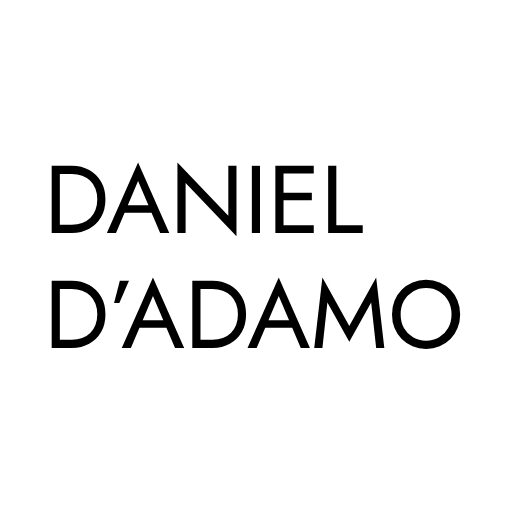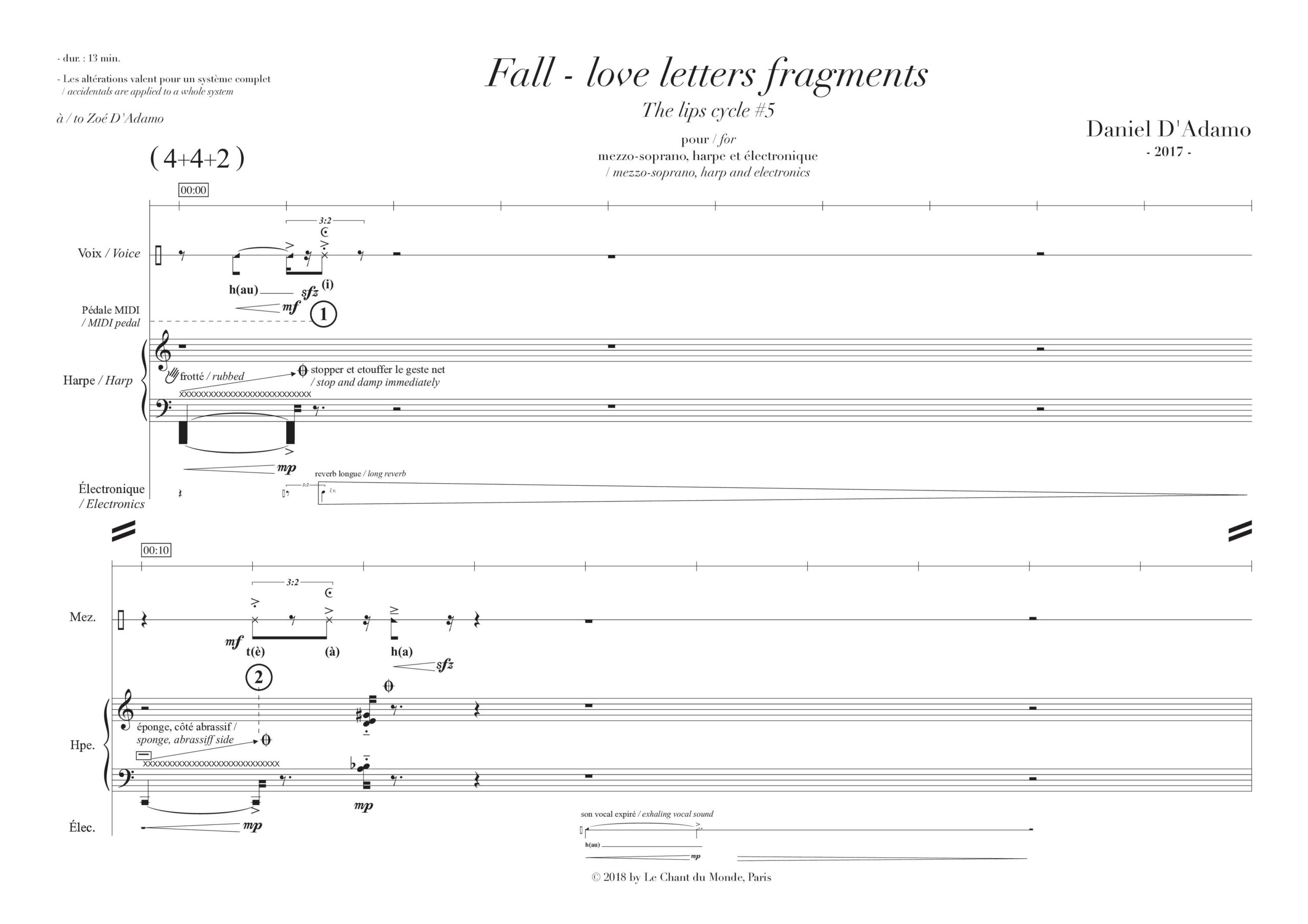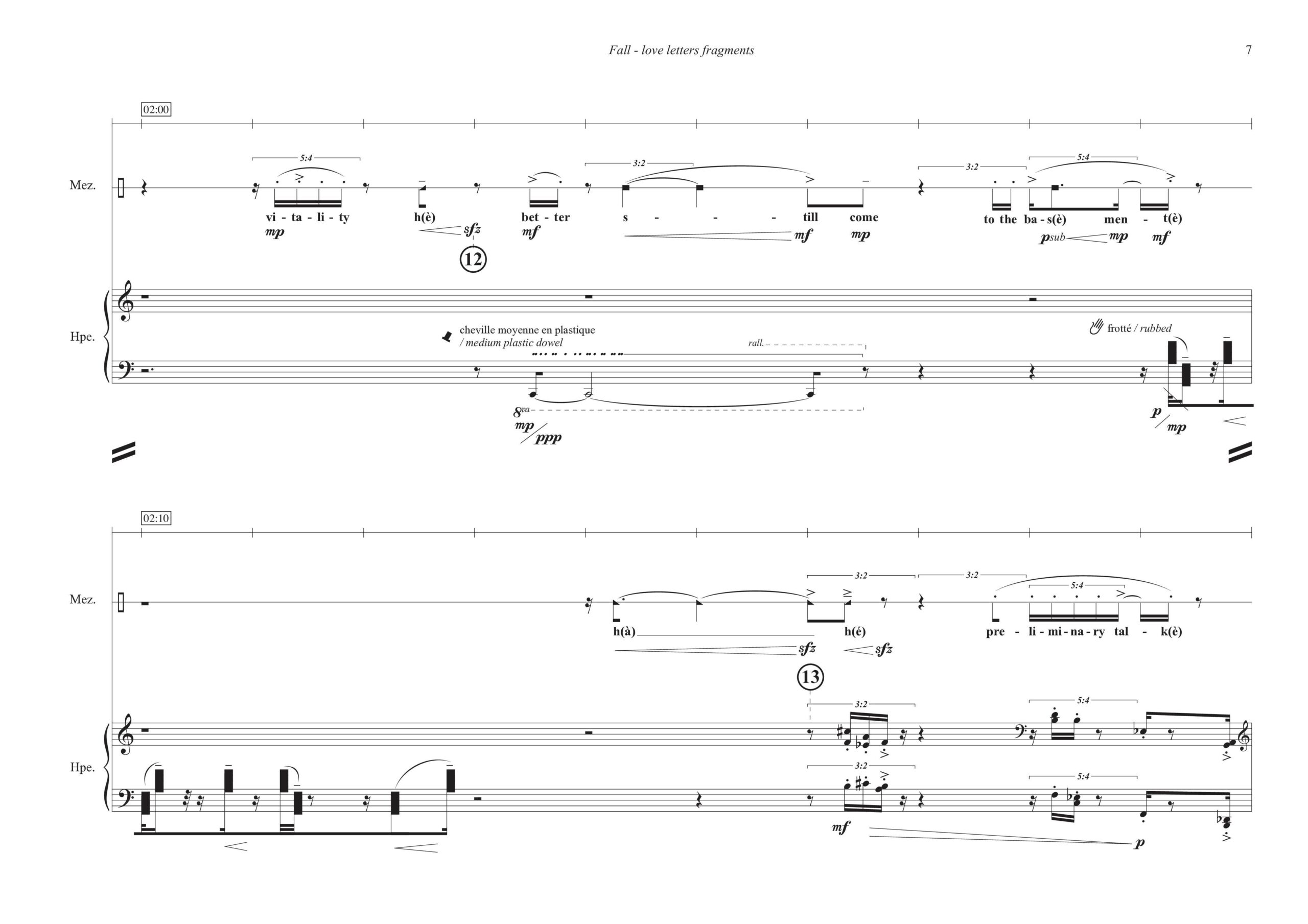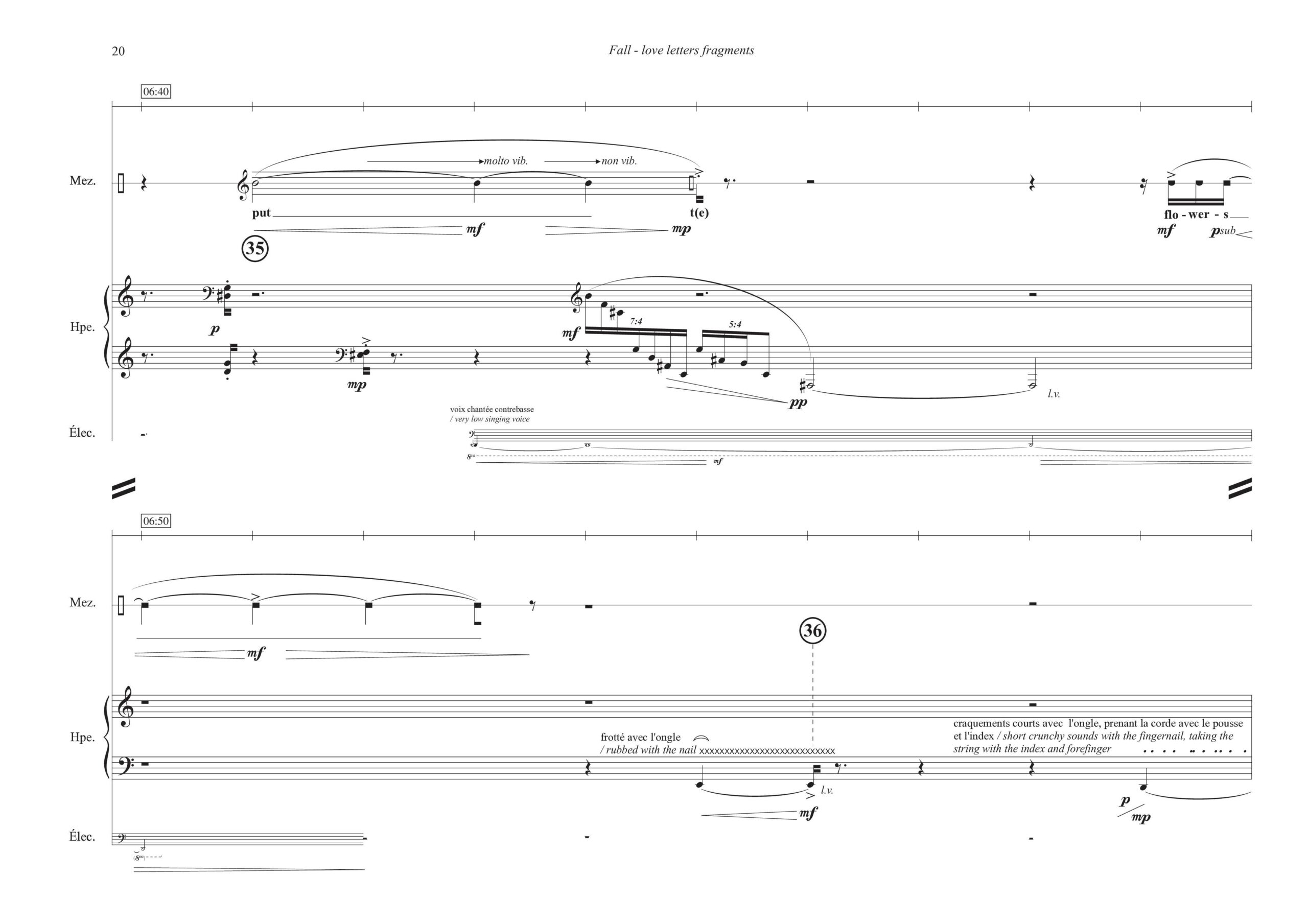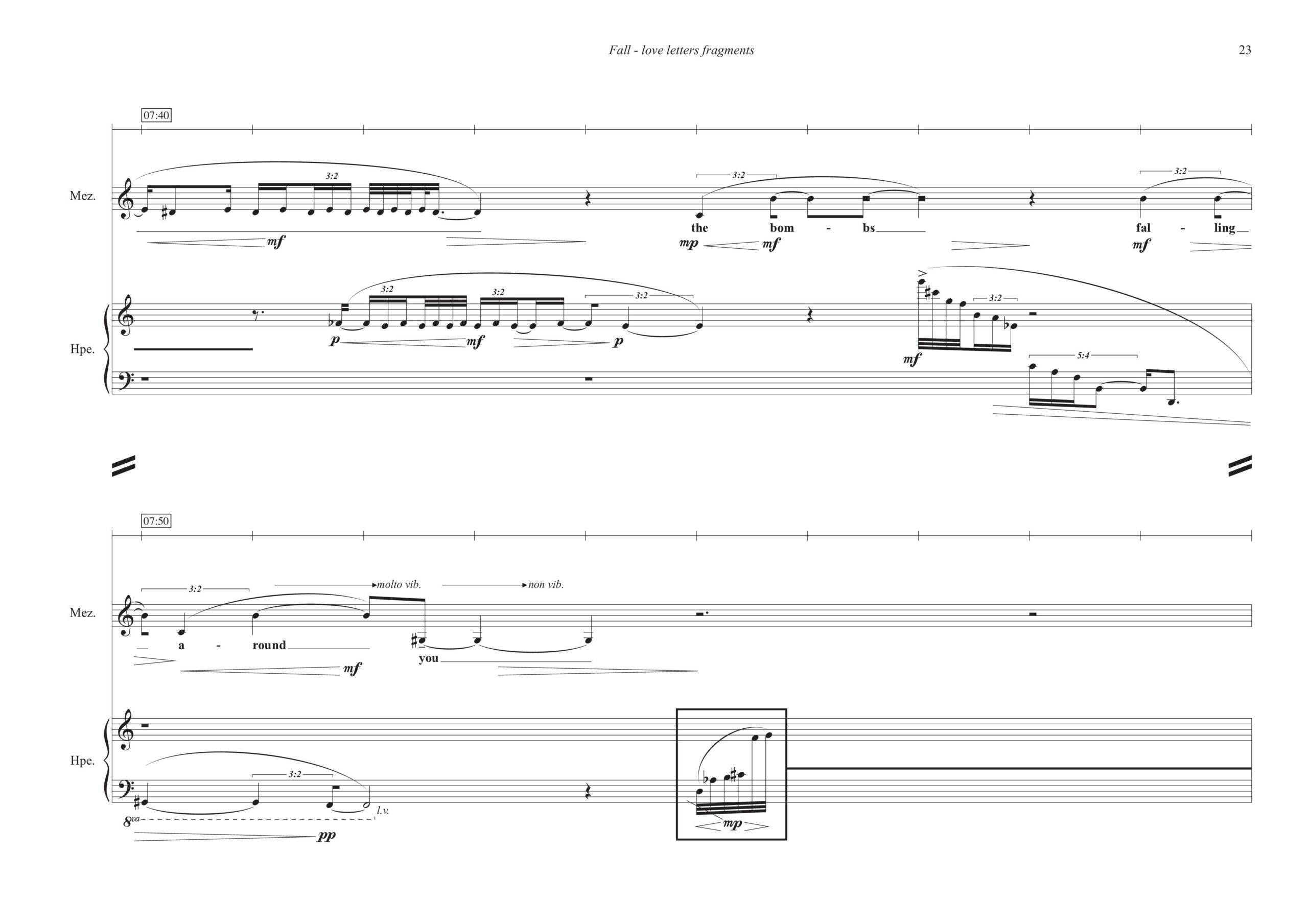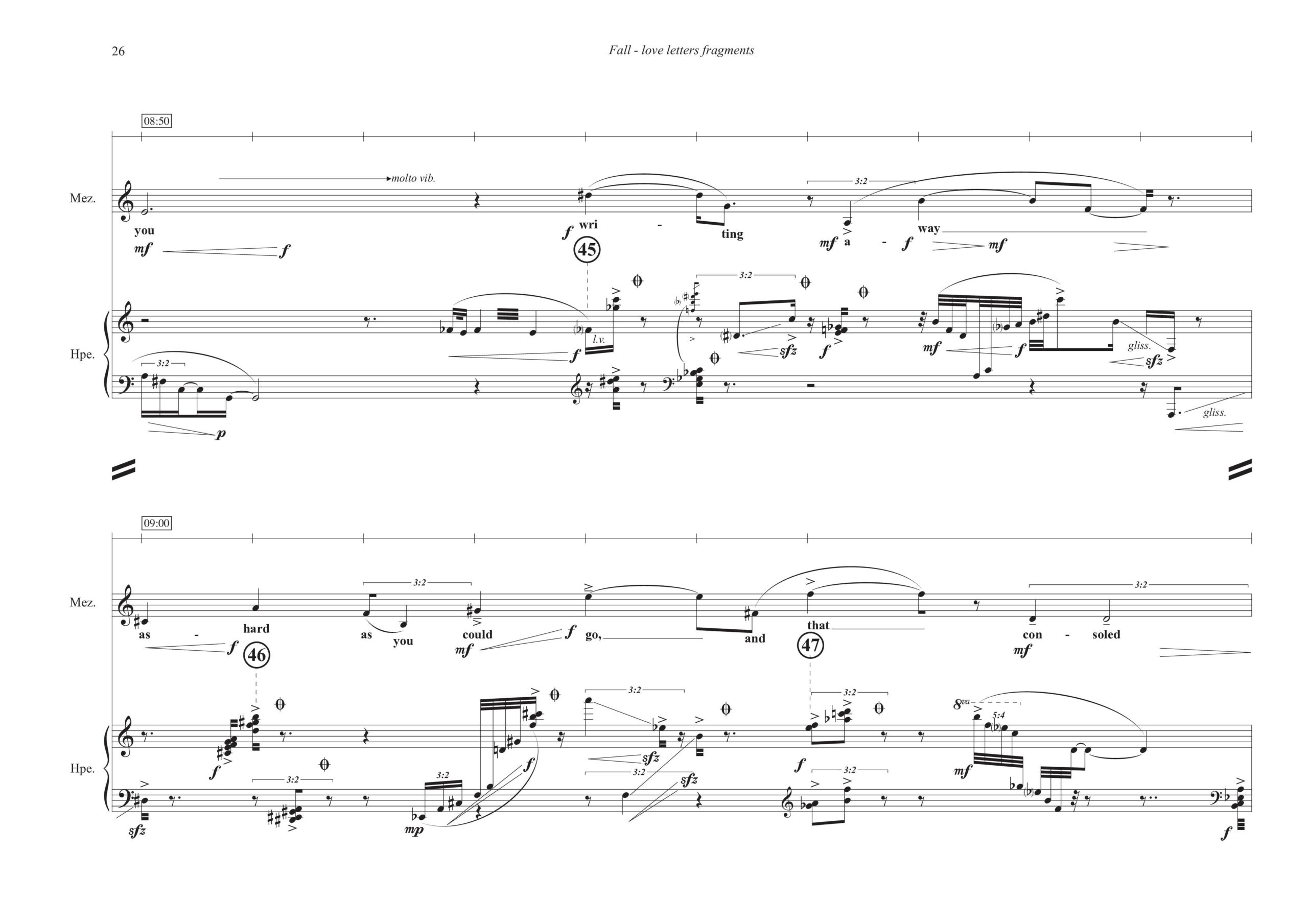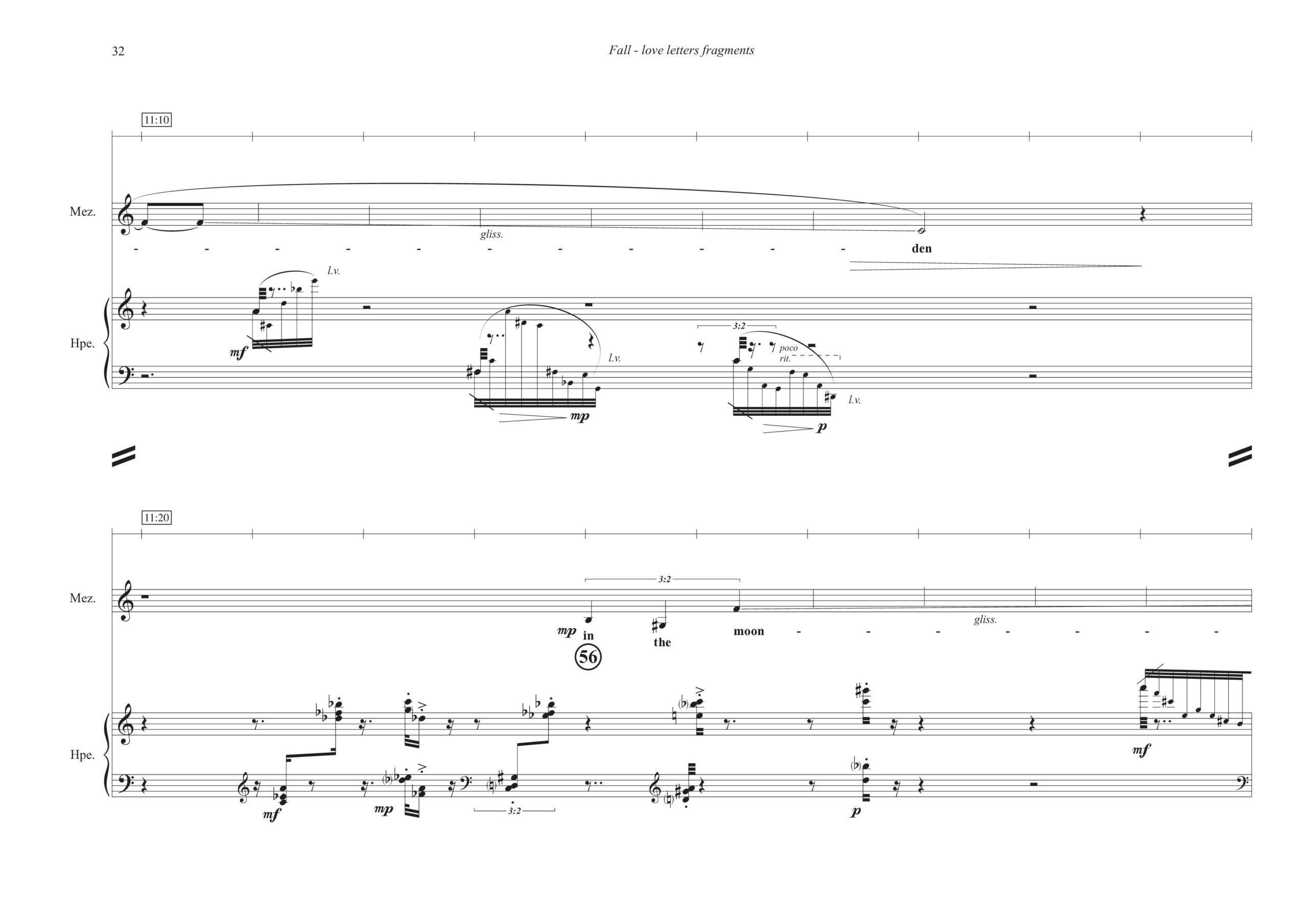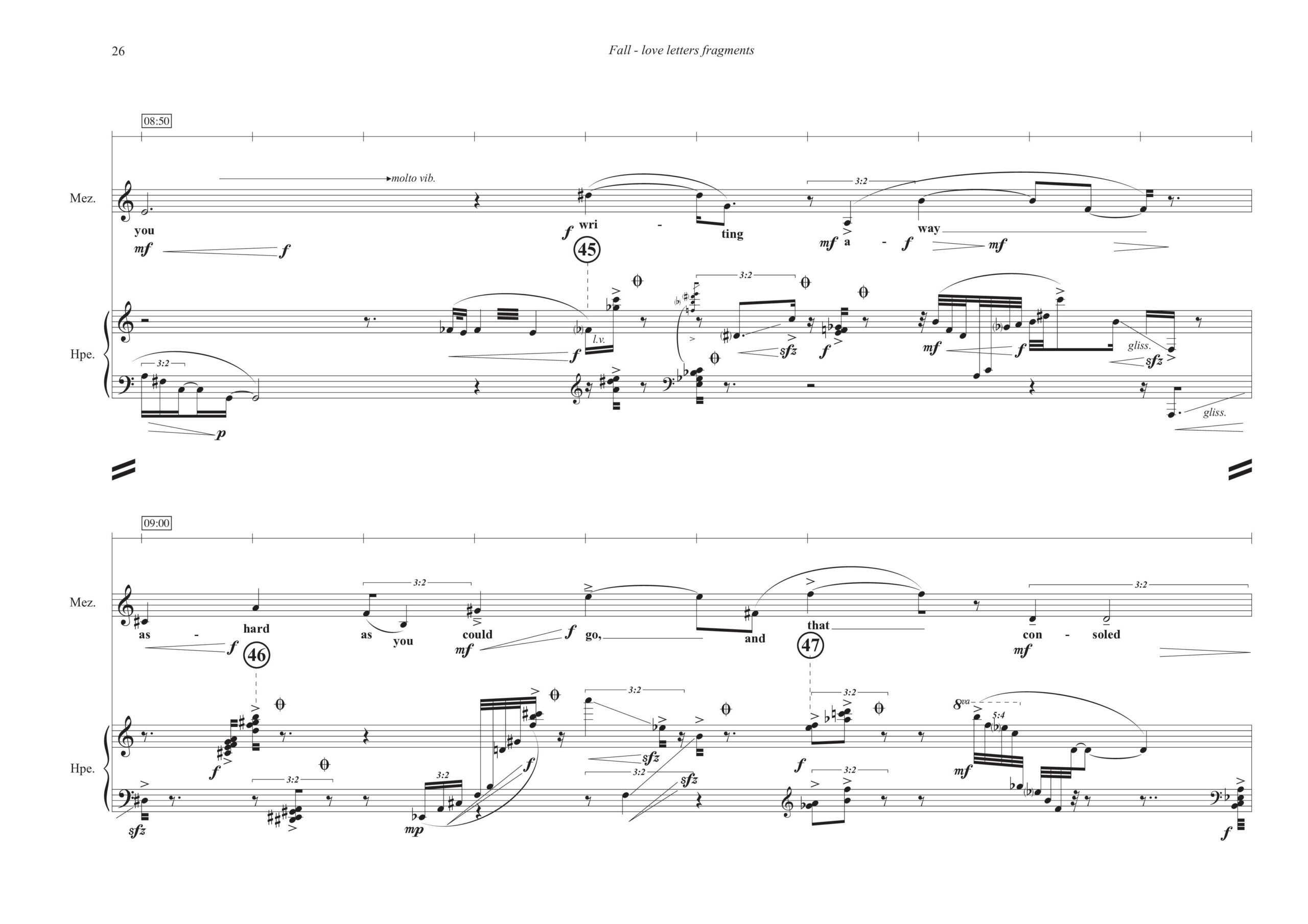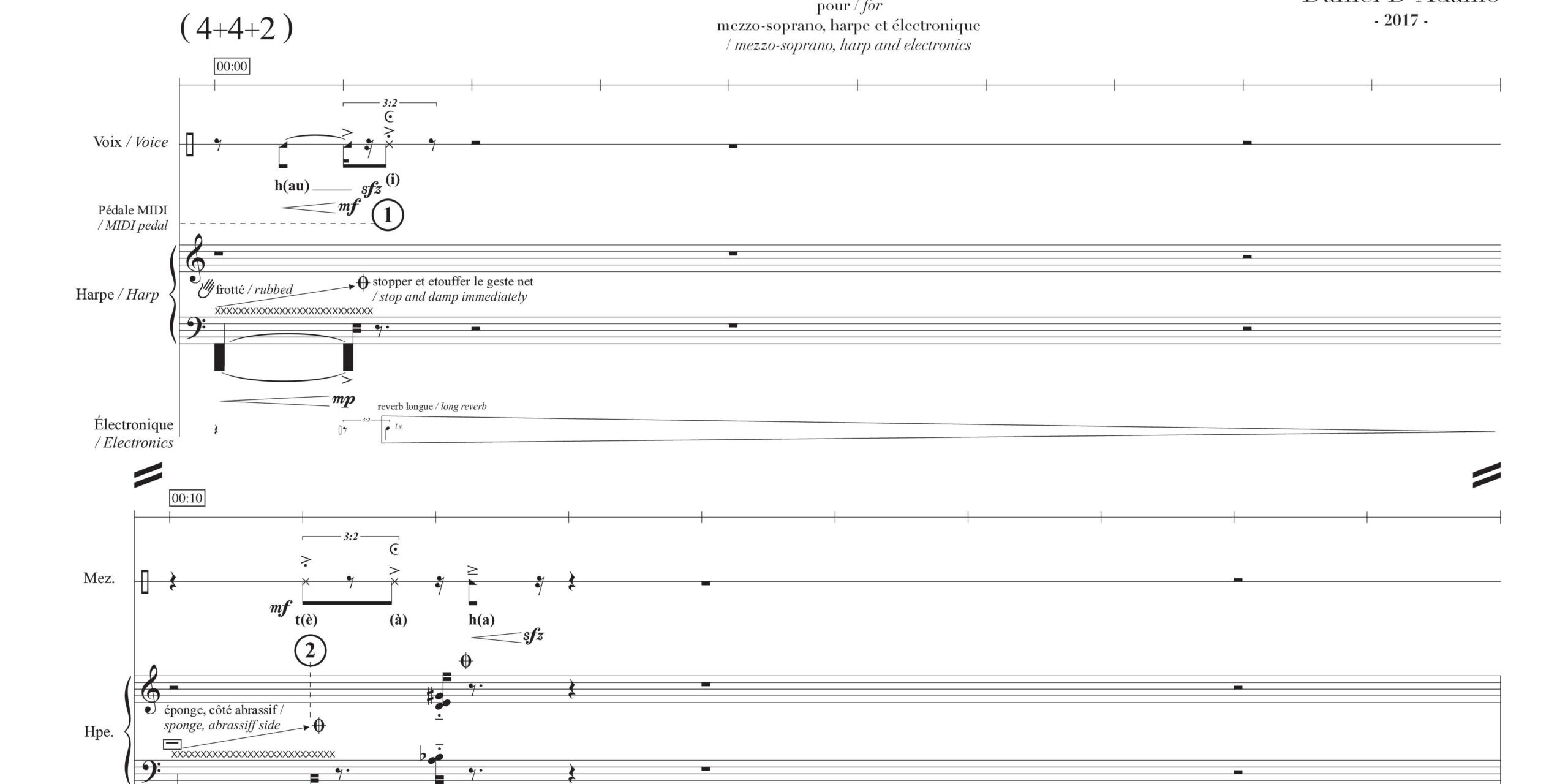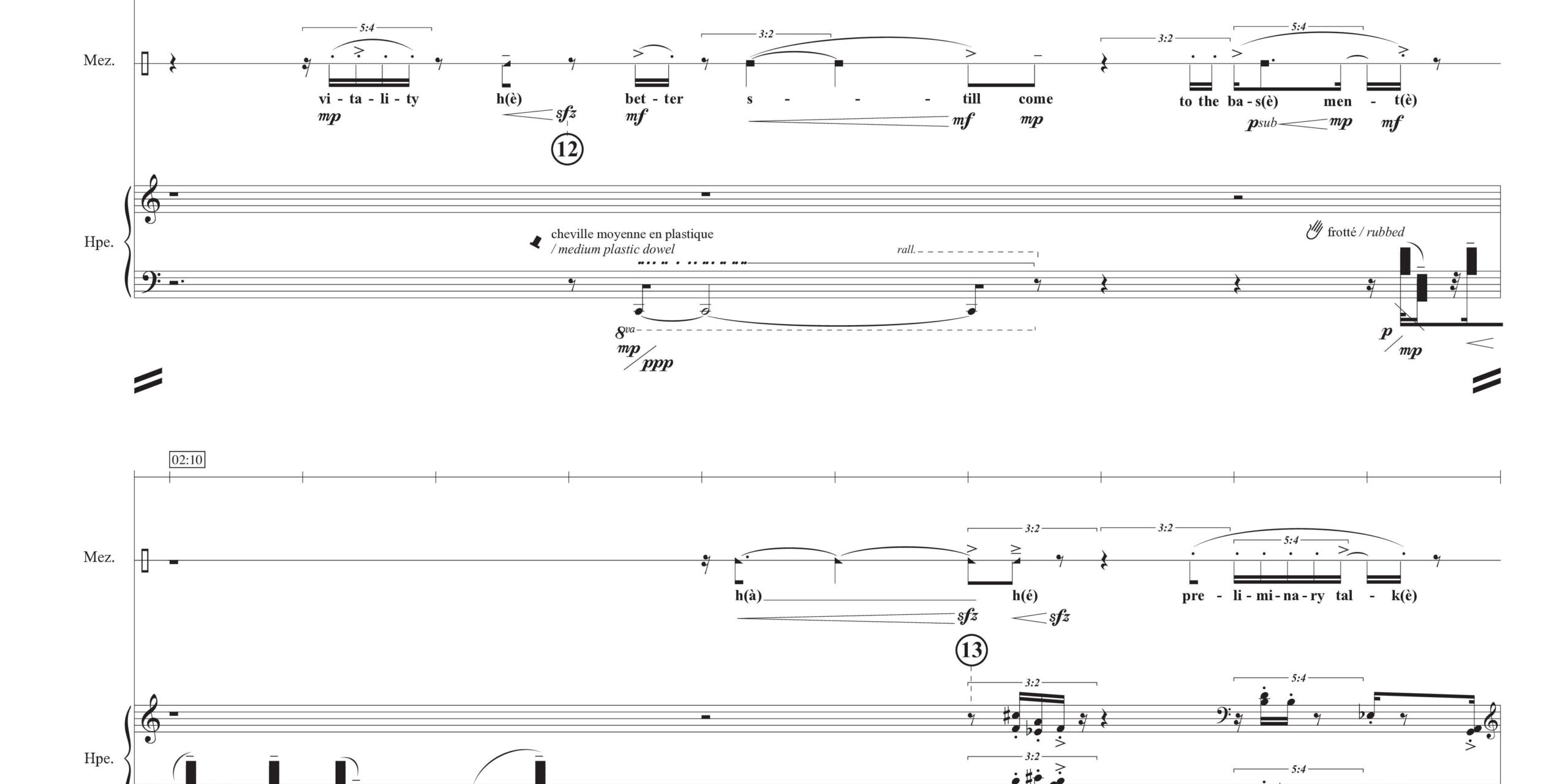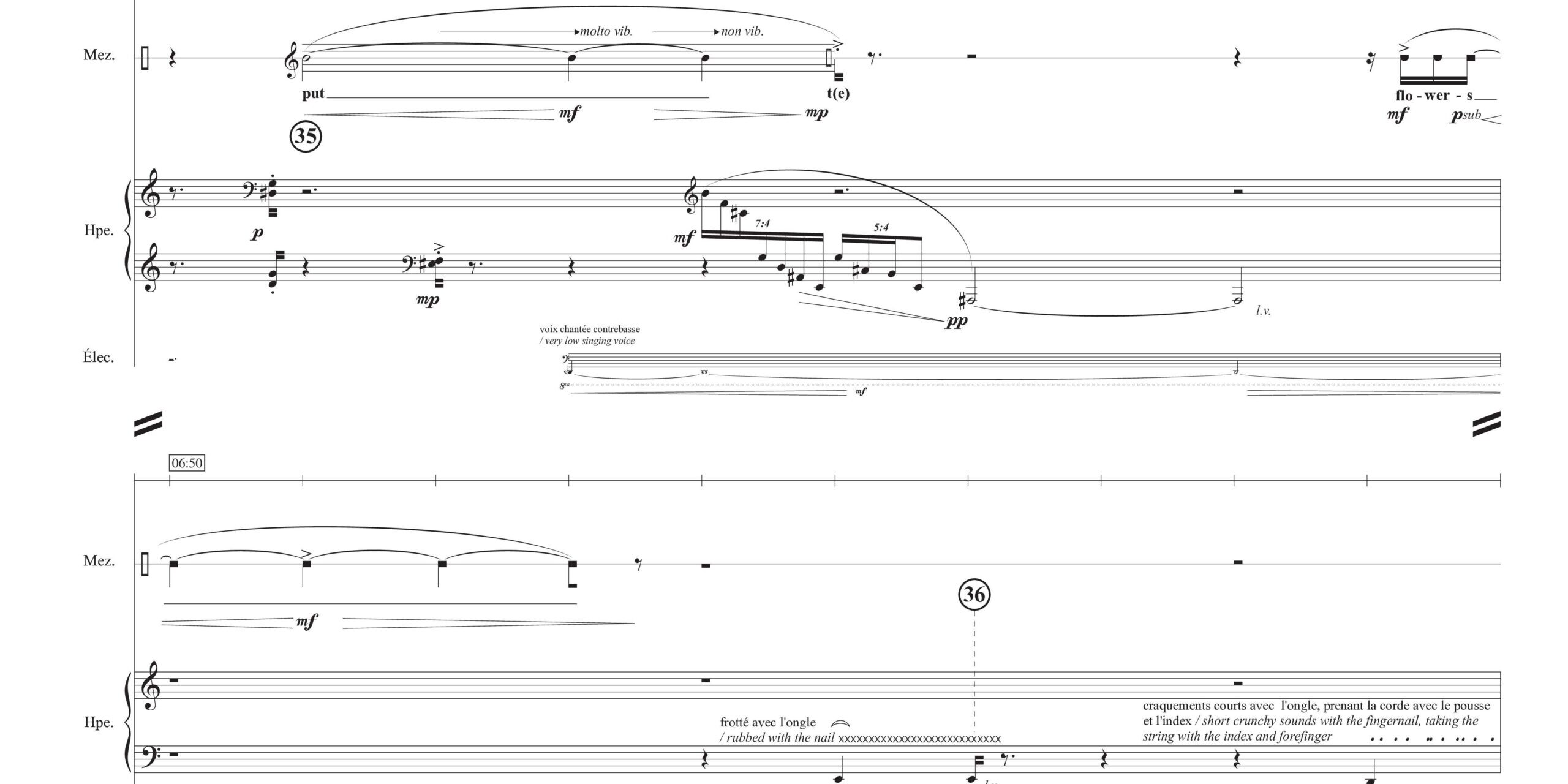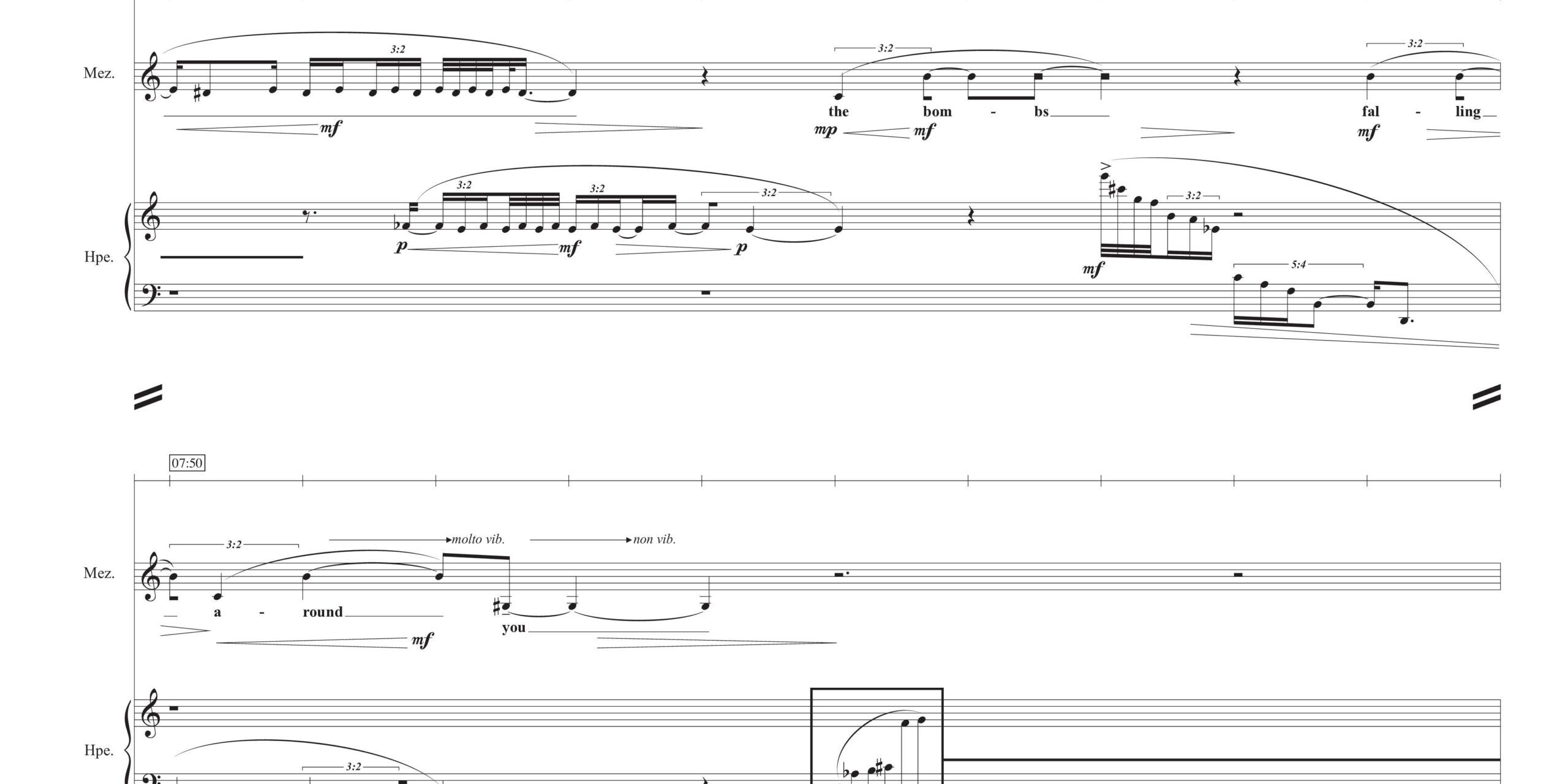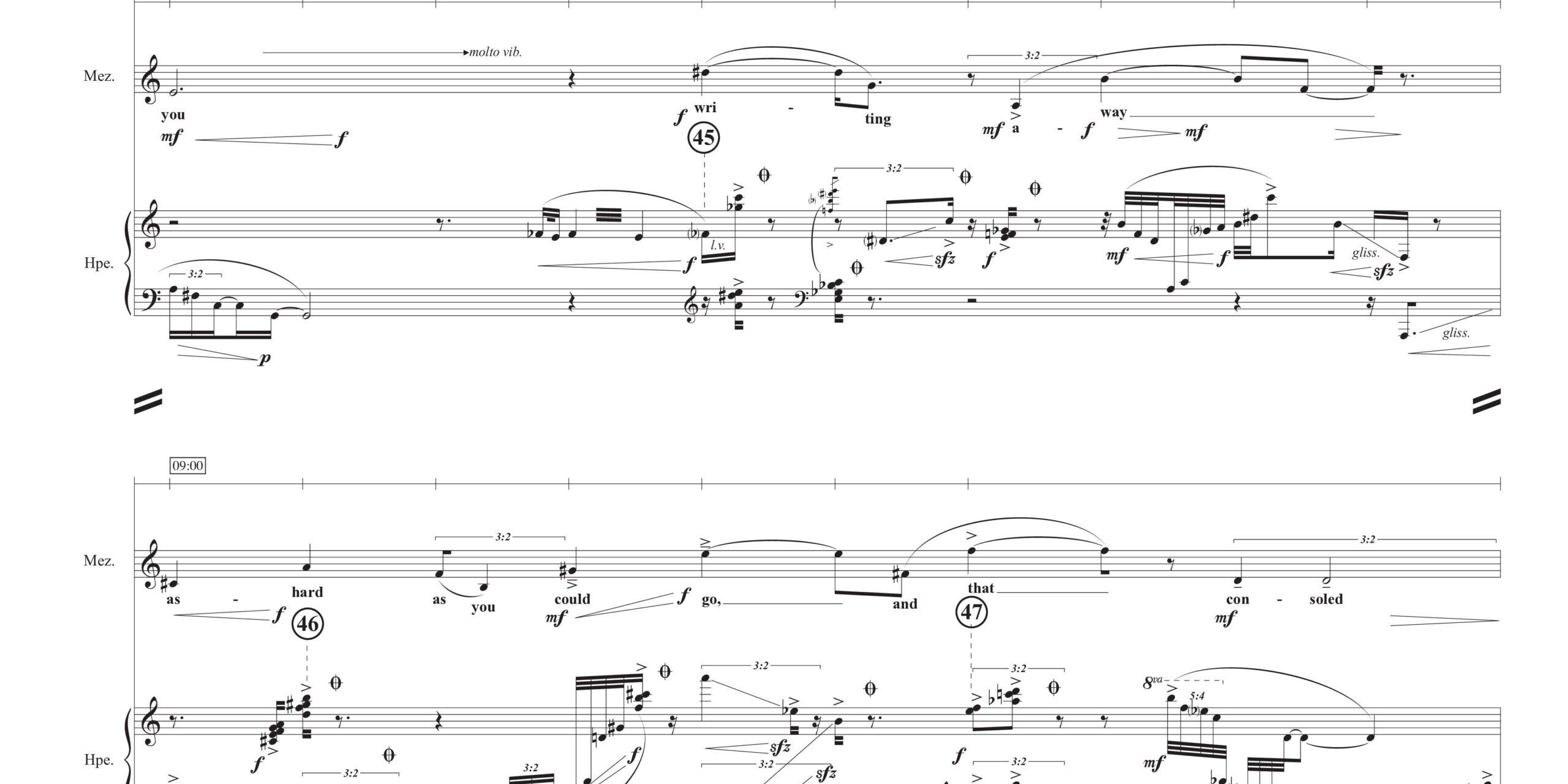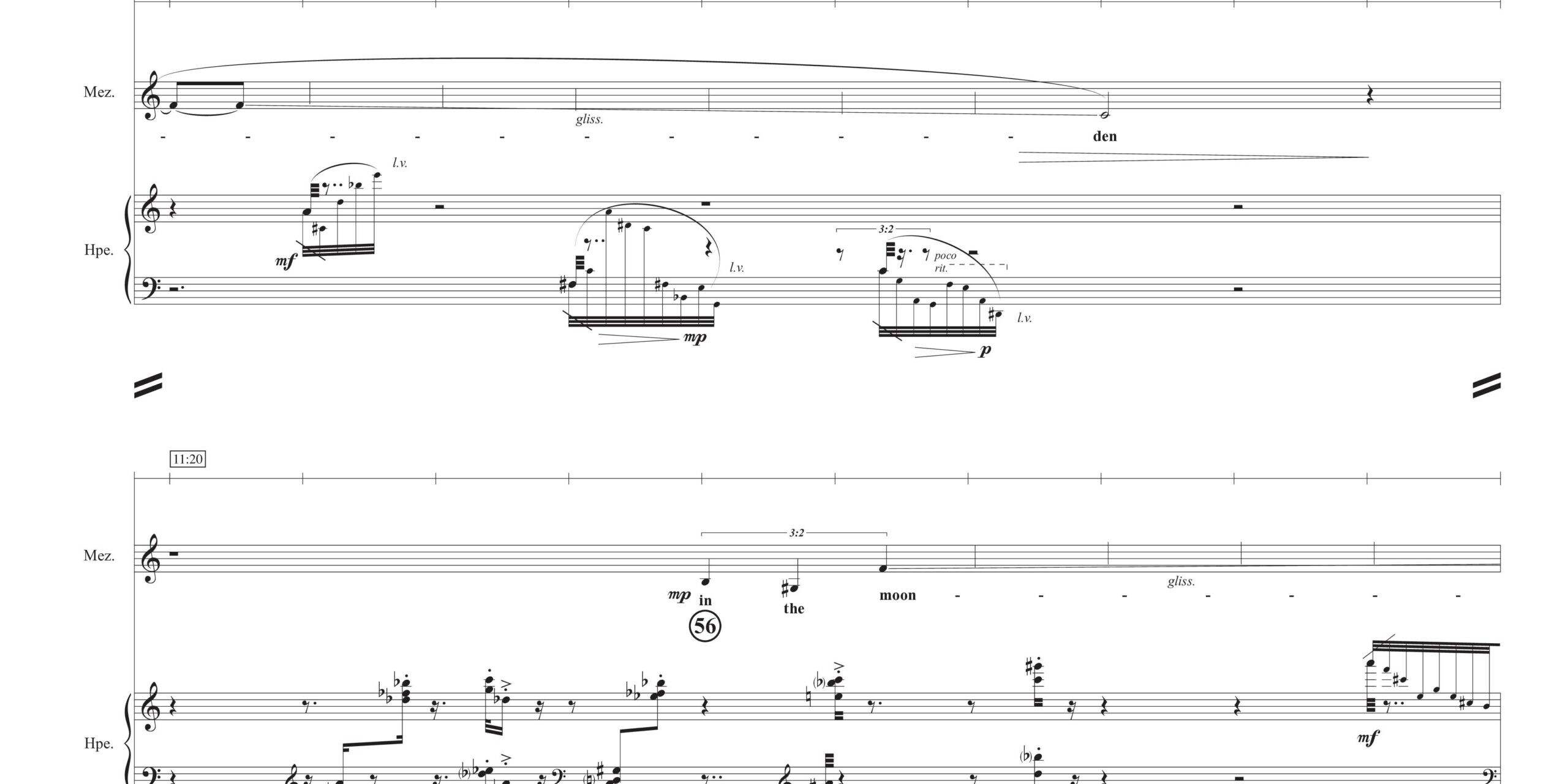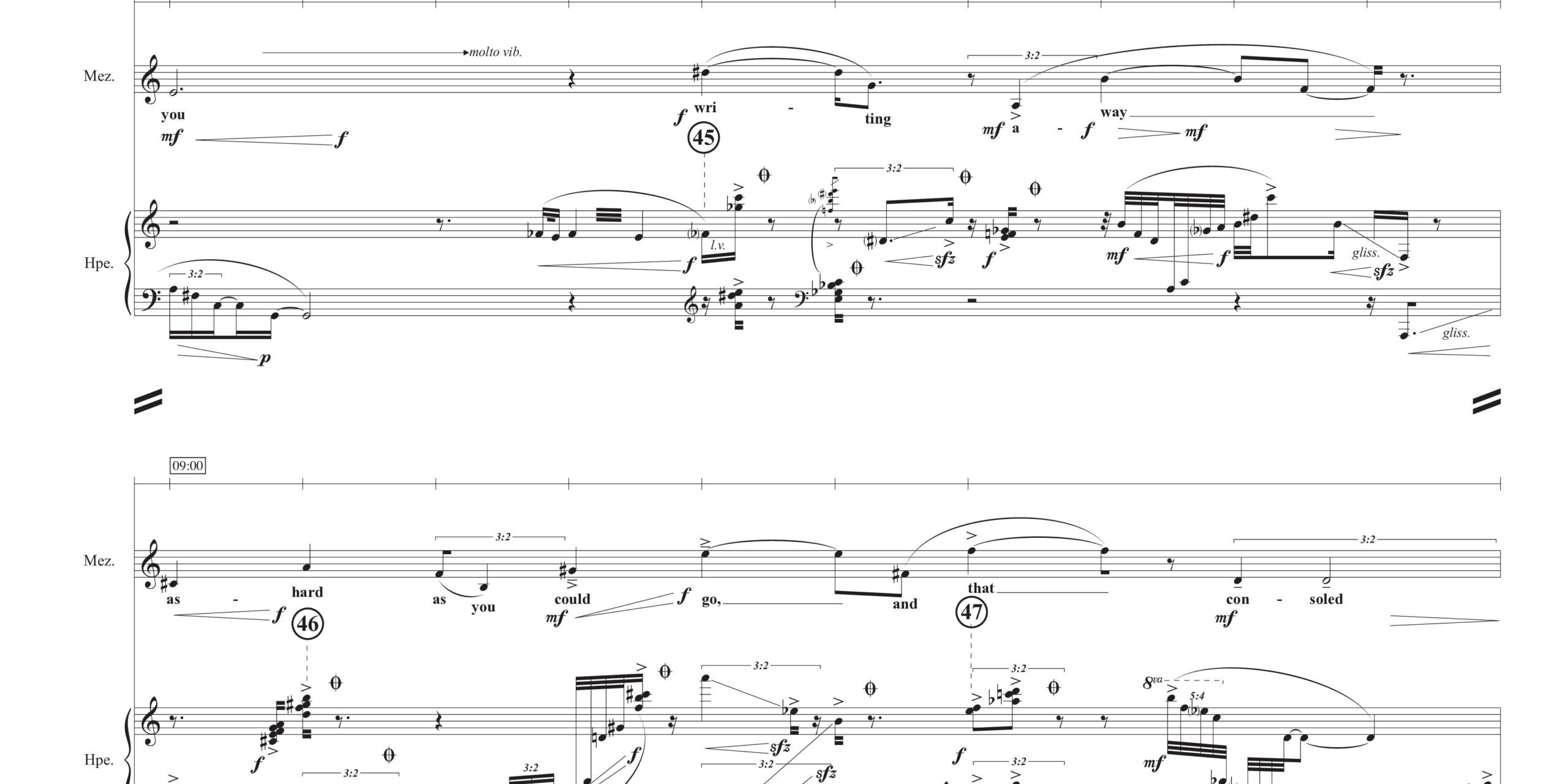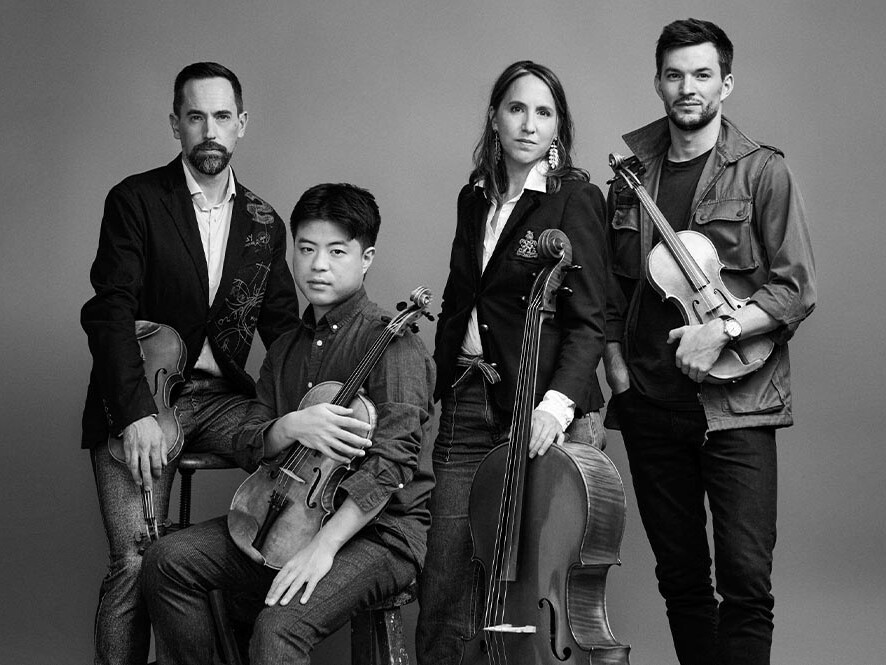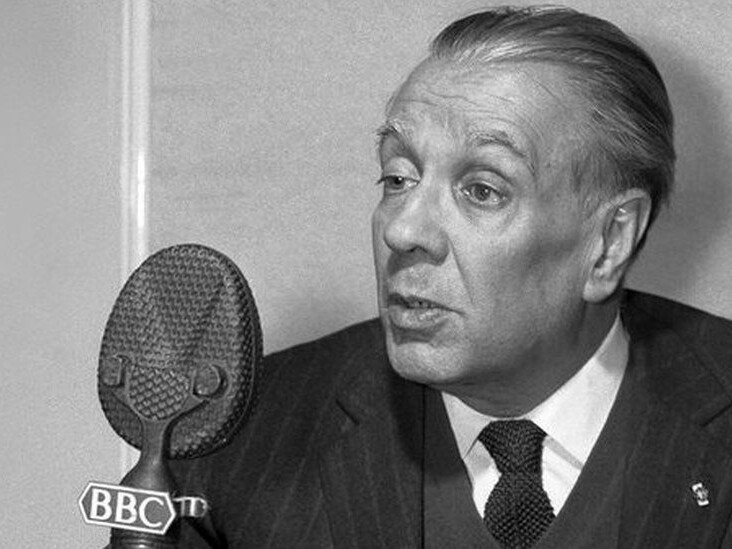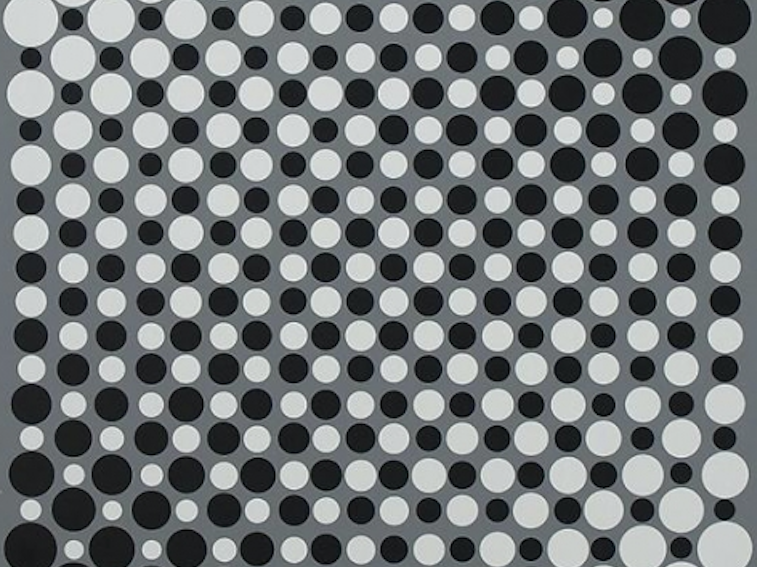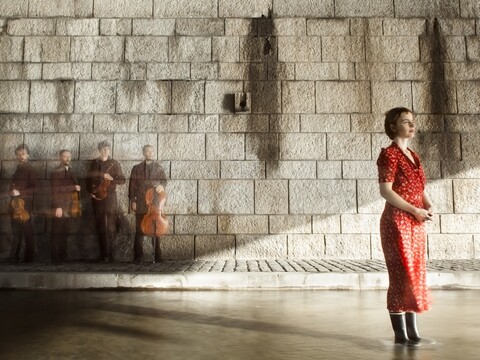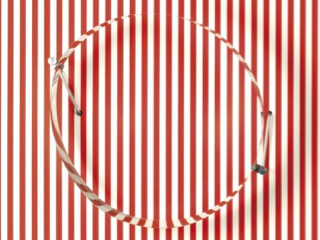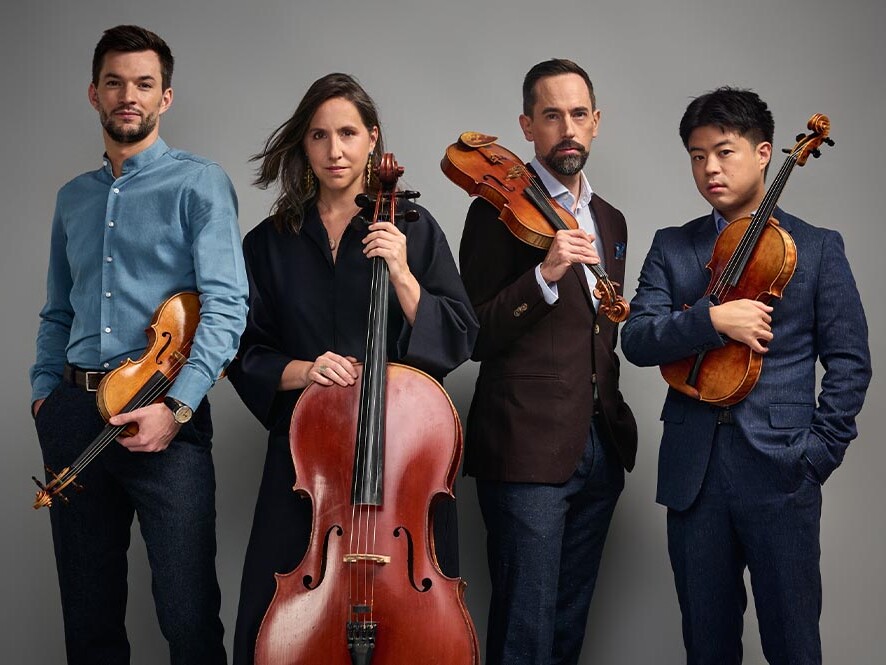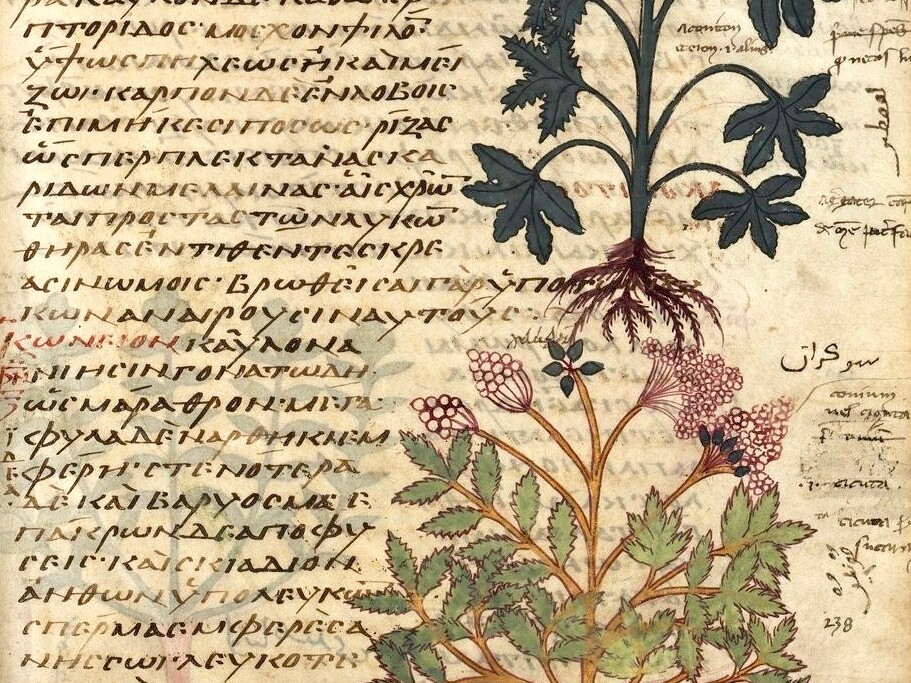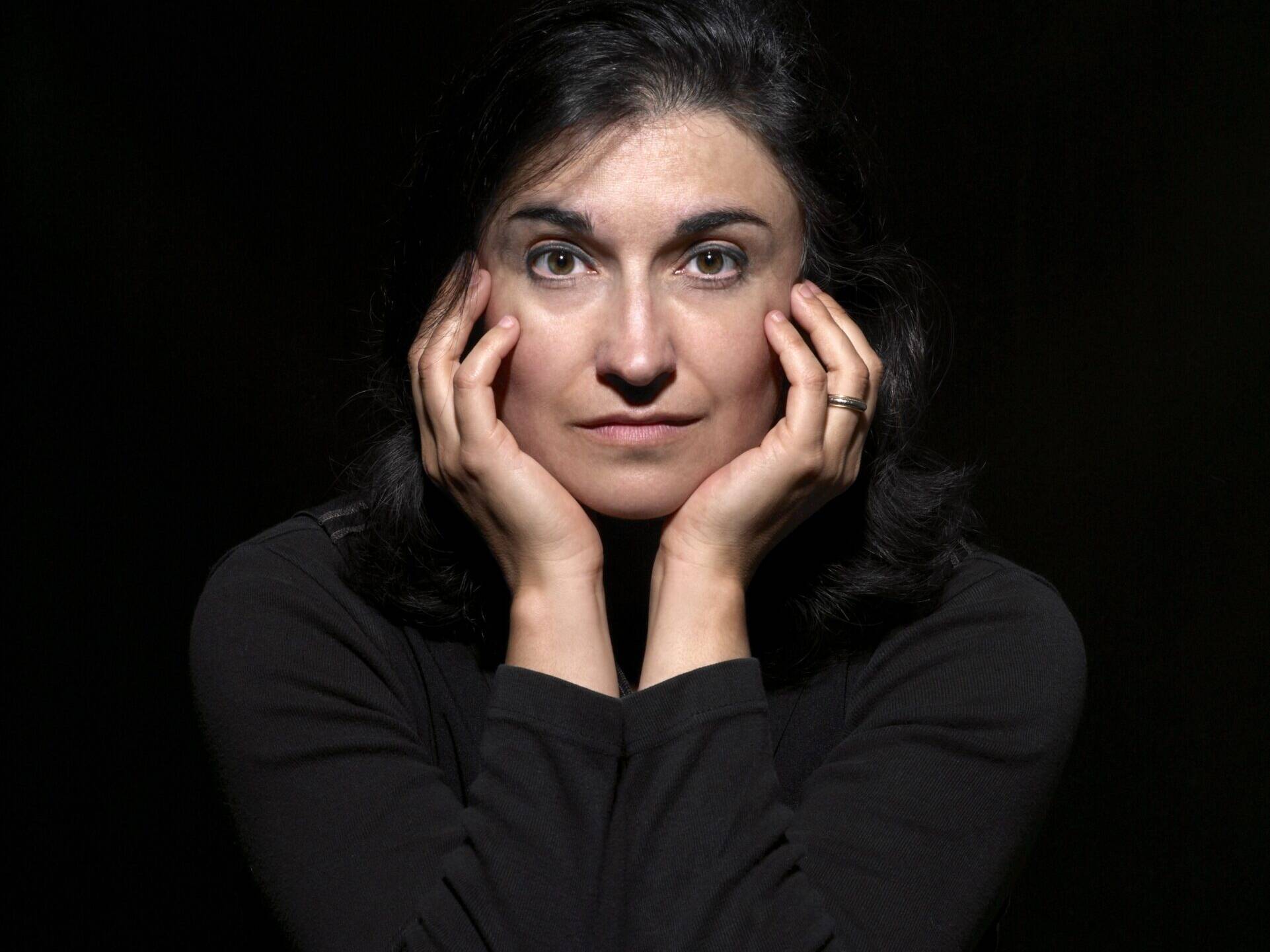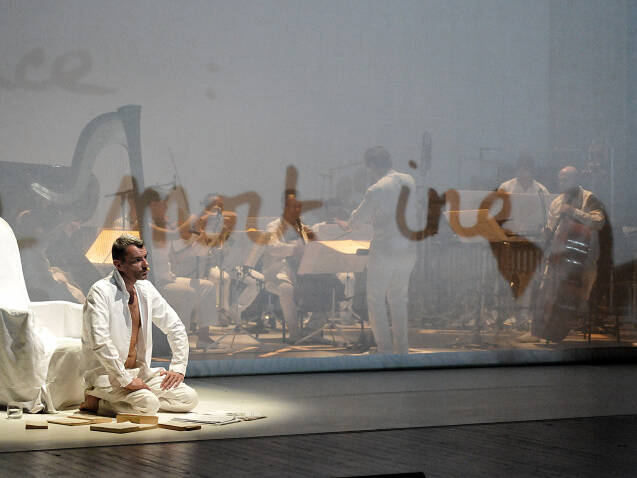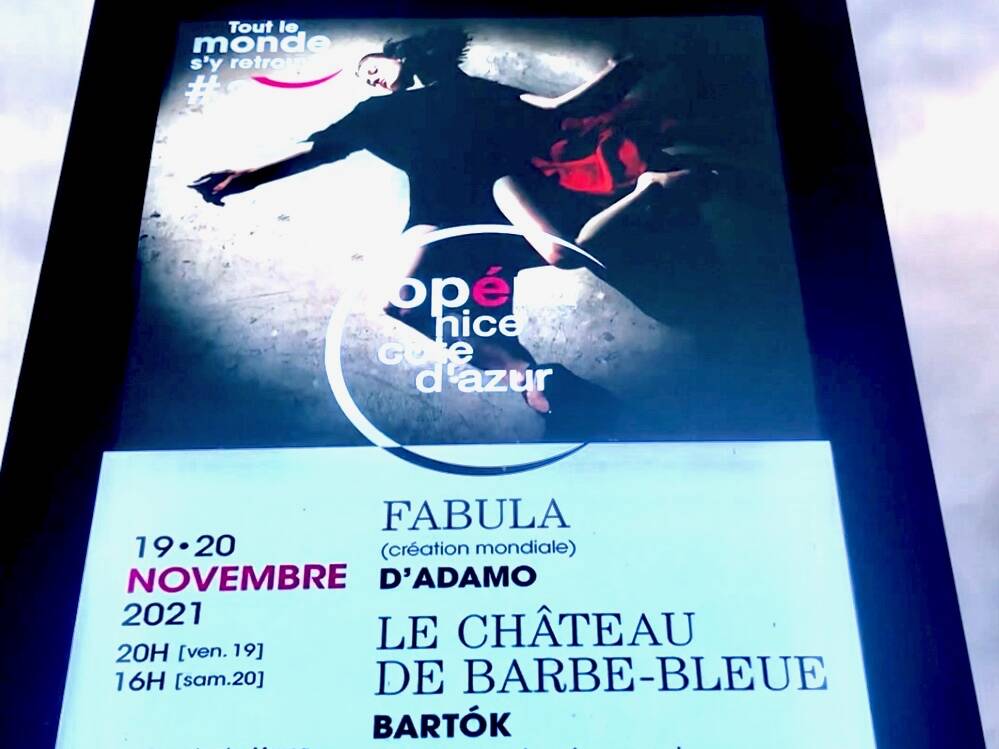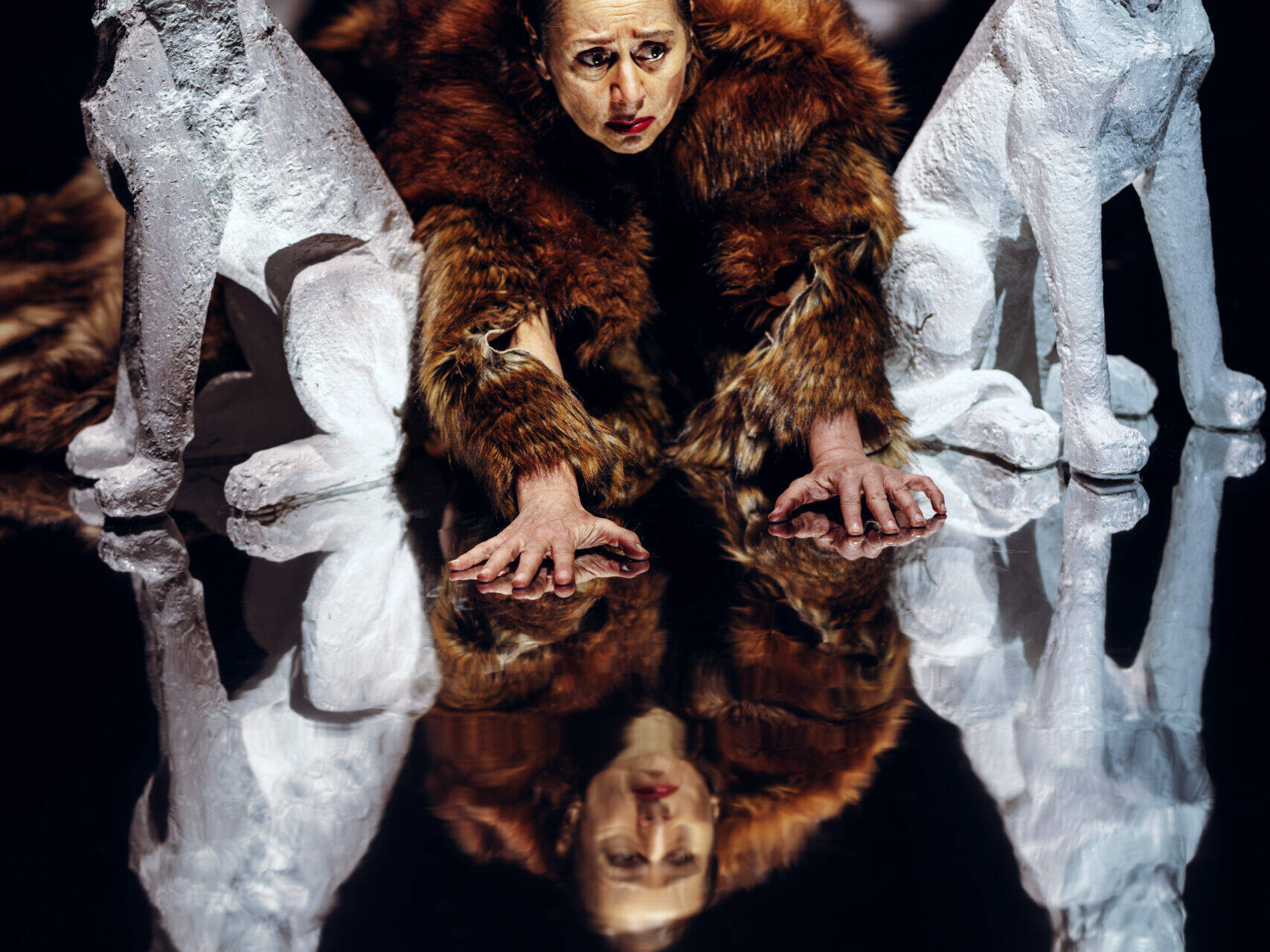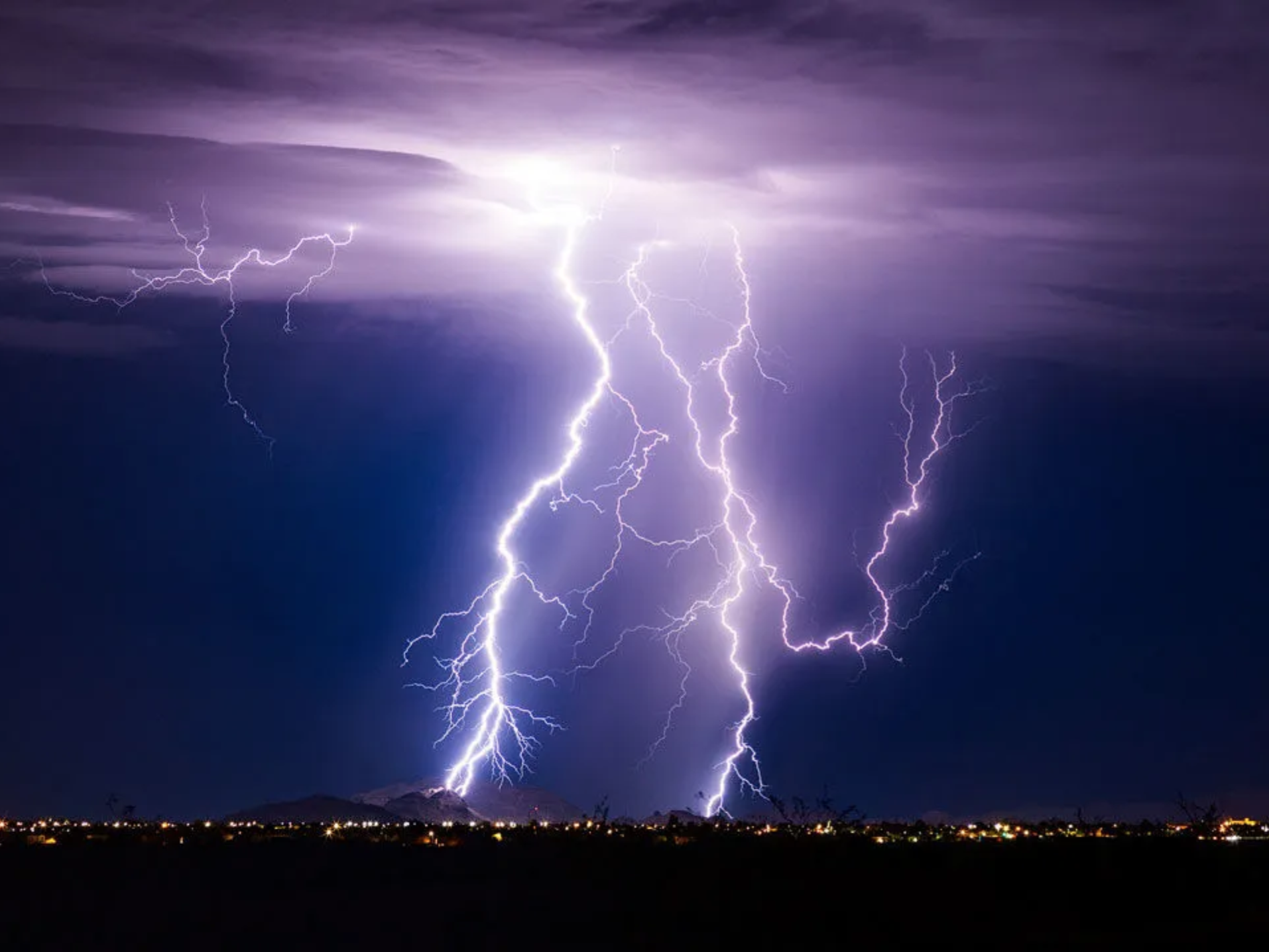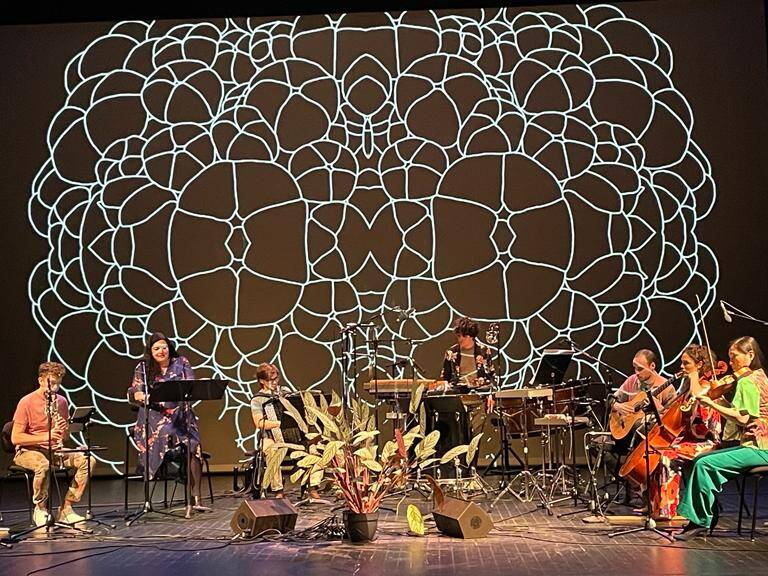Theories for living things
Publisher:
Première:
2017, Isabel Soccoja and Élodie Reibaud, Festival Multiphonies - GRM, Studio 104, Maison de la Radio.
Year
2016
Commission:
INA-GRM, France
Duration:
12 min
Fall – love letters fragments (The Lips Cycle #5)
for female voice, harp and electronics
Fall – love letters fragments closes the last part of The Lips Cycle, a series of five pieces with electronics for mezzo-soprano, flute, viola and harp in different combinations. Started in 2010 with Lips, your lips for voice and electronics, the cycle addresses the issue of sensuality related to the act of producing sound, but also to perceive it. This treatment is carried out on various levels. First on a purely sonic level by the exploration of certain techniques of production of instrumental and vocal sound, one of the objectives of which is to highlight the smallest sound expressions, the auditory minimum, in such a way that they become the generating material of a much larger formal dimension: a tiny element, a tiny terror, is then brought to produce a complex musical environment.
The electronics, in their relationship of immediate imbrication with the instrumental and vocal sound, reveal the smallest details, magnify them and re-contextualize them at the same time on a new formal scale.
The spatialization is integrated from the outset of the piece. A quadraphonic set surrounds the listener and projects around him precise trajectories and sound volumes. These composition of the sound space, which is part of the sound material itself, constantly calls the listener, it touches his body as if the body in front of the sound was more than bare: devoid of skin. Thematically, certain actions deepen the central subject of the cycle: gasping, breathing, clicking the tongue against the palate, making sound with the lips, murmuring, whispering, etc. On a purely literary level, excerpts from letters exchanged between Virginia Woolf and her lover, constitute the emotional and sensual framework of Fall, love letters fragments. In this duo for mezzo-soprano, harp and electronics, fragments of texts of a barely pronounced love, weave in their relationship with the electronics, a discourse that becomes increasingly dense and intense. Strangely, the augmenting complexity will not make the material more articulated but on the contrary, it will gradually erase the independence and the plasticity of the voices, smoothing them little by little to reveal only their contours, traces barely reminiscent of their initial states.
The electroacoustic material of Fall – love letters fragments was produced from the recording of the voice of Isabel Soccoja and the harp of Élodie Reibaud, to whom I thank for the traces they left in the piece.
NB: the citations are from Pascal Quignard, in La Haine de la Musique, éd. Calmann-Levy, 1995.
Daniel D’Adamo
Fall – love letters fragments (The Lips Cycle #5)
pour voix de femme, harpe et électronique
Fall – love letters fragments clôture le dernier volet de The lips cycle (Le cycle des lèvres), série de cinq pièces avec électronique pour différentes formations combinant mezzo-soprano, flûte, alto et harpe. Commencé en 2010 avec Lips, your lips pour voix et électronique, le cycle traite la question de la sensualité liée à l’acte de produire le son, mais aussi de le perce- voir. Ce traitement est réalisé sur divers plans. D’abord sur un plan purement sonore par l’exploration de certaines techniques de production du son instrumental et vocal, dont l’un des objectifs est de mettre en évidence les plus petites expressions sonores, le minimum auditif, de telle manière qu’elles deviennent le matériel générateur d’une dimension formelle bien plus large : un élément infime, une minuscule terreur, est alors amené à produire un environnement musical complexe.
Sur le plan de l’électroacoustique: dans son rapport d’imbrication immediate avec le son instrumental et vocal, il dévoile ses moindres détails, les magnifie et les recontextualise du même coup, sur une nouvelle échelle formelle.
Sur le plan de la spatialisation qui est intégrée dès le départ dans l’écriture de l’électronique: une quadriphonie entoure l’auditeur et projette autour de lui des trajectoires et des volumes sonores précis. Cette écriture de l’espace qui fait partie de la matière sonore elle même, interpelle l’auditeur en permanence, il touche son corps comme si le corps devant le son se présentait plus que nu : dépourvu de peau. Sur le plan thématique, certaines actions creusent le sujet central du cycle: l’halètement, la respiration, le souffle, le claquement de la langue contre le palais, la mise en vibration des lèvres, la parole murmurée, etc.
Sur le plan purement littéraire, des extraits de la correspondance amoureuse échangée entre Virginia Woolf et son amante ont constitué le cadre émotionnelle et
sensuel de Fall – love letters fragments. Dans ce duo pour mezzo-soprano et harpe, des bribes de textes, des fragments d’amour à peine prononcé, tissent dans leurs rapports avec l’électronique un discours qui se fait de plus en plus dense et intense. Étrangement, la complexité croissante ne rendra pas la matière plus articulée mais au contraire, elle viendra effacer l’indépendance et la plasticité des voix, les lissant peu à peu pour laisser apparaître uniquement des contours glissés, des traces rappelant à peine leurs états initiaux.
L’ensemble du matériel électroacoustique de Fall – love letters fragments a été produit à partir de l’enregistrement de la voix d’Isabel Soccoja et de la harpe d’Élodie Reibaud, que je remercie pour ce qu’elles ont su y laisser.
NB : les citations en italiques appartiennent à Pascal Quignard, in La Haine de la Musique, éd. Calmann-Levy, 1995.
Daniel D’Adamo
– I –
Dearest,
I feel certain I am going mad again. I feel we can’t go through another of those terrible times. And I shan’t recover this time. I begin to hear voices, (…).
I can’t fight any longer. (…)
So I am doing what seems the best thing to do. (…)
Everything has gone from me (…).
– II –
stopped talking to you
scrapes
inquieries
come at once
exuberance
so keen and persistent feeling
paroxysms
about somebody
sign of vitality
better still come to the bassement
preliminary talk
rather pleasent
anxious you must be
so stange
it’s perfectly peaceful there
say
except that
got to live through this strange thinking
quiet
happiness
dearest, shall work hard to please you, partly to please myself
something to show for it
I went to bed last night as black as a sweep. (…) I want more than ever to travel with you ; it seems to me now the hight of my desire, and I get into despair wondering how it can ever be realized. Can I, do you think ? I do want you so frightfully (…). I feel my muscles hardening.
I was at a crossways just about te time I first met you.
I did enjoy seing you (…).
I’d just put flowers in your room. (…) And there you sit with the bombs falling around you (…).
But this morning I thought of you writing away as hard as you could go, and that consoled me (…).
– III –
Throw over your man, and we’ll go dine on the river together and walk in the garden in the moonlight. (…)
I’ll tell you all the things I have in my head, millions, myriads. (…)
They won’t stir by day, only by dark on the river.
You can watch the full video of the première of Fall, love letters fragments, here => https://www.youtube.com/watch?v=agR3UieK9Ac
